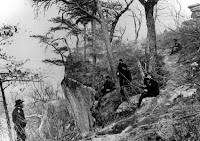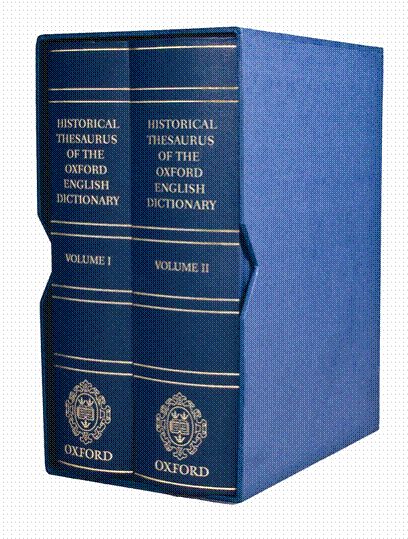 I am fascinated by the science of retrieving sound waves from wherever they go after they hit the air and dissipate. Since waves don’t end but keep spreading out, any sound ever made is technically still out there waiting to be rounded up and heard again. That’s incredible. It means, among other things, that if we could refine the science enough, we could literally hear epic moments like the Gettysburg Address or re-experience sweet, personal exchanges like a baby cooing. How eerie yet thrilling would it be to stand in a field in Pennsylvania and hear Abraham Lincoln’s actual voice brought back to life by modern technology corralling scattered sound waves? But, in some ways, I don’t think we need to wait for those advances. Have you ever been somewhere and heard the echoes of the past? Not specific words, maybe, but whispers of sound that seem to linger. In Chattanooga, Tennessee, there is a massive natural stronghold of
I am fascinated by the science of retrieving sound waves from wherever they go after they hit the air and dissipate. Since waves don’t end but keep spreading out, any sound ever made is technically still out there waiting to be rounded up and heard again. That’s incredible. It means, among other things, that if we could refine the science enough, we could literally hear epic moments like the Gettysburg Address or re-experience sweet, personal exchanges like a baby cooing. How eerie yet thrilling would it be to stand in a field in Pennsylvania and hear Abraham Lincoln’s actual voice brought back to life by modern technology corralling scattered sound waves? But, in some ways, I don’t think we need to wait for those advances. Have you ever been somewhere and heard the echoes of the past? Not specific words, maybe, but whispers of sound that seem to linger. In Chattanooga, Tennessee, there is a massive natural stronghold of  great tactical benefit during the Civil War. The army that controlled Lookout Mountain, with its towering height and expansive view, was in a position of virtually impenetrable superiority, and as such it was the scene of fierce fighting. At the base of the mountain, if you stand very still and listen very carefully, the wind still carries the sounds of long ago. It is haunted. In Walt Disney Production’s The Haunted House, Mickey and friends are hearing things. I wonder if it would help to know it’s just trapped sound waves.
great tactical benefit during the Civil War. The army that controlled Lookout Mountain, with its towering height and expansive view, was in a position of virtually impenetrable superiority, and as such it was the scene of fierce fighting. At the base of the mountain, if you stand very still and listen very carefully, the wind still carries the sounds of long ago. It is haunted. In Walt Disney Production’s The Haunted House, Mickey and friends are hearing things. I wonder if it would help to know it’s just trapped sound waves.
P.S. Enjoy your book, Little Rhys!
http://www.amazon.com/HAUNTED-HOUSE-Disneys-Wonderful-Reading/dp/039492570X
http://www.earlymoments.com/Our-Products/Disney-Book-Club/
Welcome to Historical Thesaurus Week on the OUPblog! Every day this week we will be looking at the first historical thesaurus to be written for any of the world’s languages, the Historical  Thesaurus of the Oxford English Dictionary. Conceived and complied by the English Language Department of the University of Glasgow, and based on the Oxford English Dictionary, it is the result of over 40 years of scholarly labor. Today we have an article by Ammon Shea, a good friend of this blog, which looks at how the HTOED could be used to rewrite the Gettysburg Address. Be sure to check back all week to learn more about the HTOED.
Thesaurus of the Oxford English Dictionary. Conceived and complied by the English Language Department of the University of Glasgow, and based on the Oxford English Dictionary, it is the result of over 40 years of scholarly labor. Today we have an article by Ammon Shea, a good friend of this blog, which looks at how the HTOED could be used to rewrite the Gettysburg Address. Be sure to check back all week to learn more about the HTOED.
Mark Twain once famously remarked that the difference between the almost-right word and the right word was the same as “the difference between the lightning-bug and the lightning”. Choosing words based on incomplete information can easily lead to writing that may range from the simply unclear to the laughably wrong. Below is an illustrative example of how the Historical Thesaurus of the Oxford English Dictionary might be of use when faced with the need to find the right word, as opposed to the almost-right one.
Imagine you are a student who has been asked to re-write the beginning of Abraham Lincoln’s Gettysburg Address. As an example of how you might do this, we’ve posted the opening line with four words bolded. What options would you have to replace these words with synonyms if you were using the HTOED, as opposed to if you were using an online thesaurus?
“Four score and seven years ago our fathers brought forth on this continent a new nation, conceived in Liberty, and dedicated to the proposition that all men are created equal.”
Fathers – Looking in the HTOED, there are 26 different words listed as synonyms of father (ancestor). Every one of these words is provided with dates for the first recorded instance of its use in English. In a number of cases there is also a date provided for a word’s last recorded use as well. Given that the Gettysburg Address was written in 1863, the user of this thesaurus would be informed of the fact that fore-runner, antecestre, and eldfather were no longer in use at that time, but that grandsire, ancestor, and progenitor were.
In the event that one wished to be more specific, there are another 47 words and phrases that are related to the concept of ancestors, all of which are listed under a specific subcategory. For instance, the HTOED differentiates between ancestors in general and female ancestors. It provides separate categories for ancestors in direct line and ancestors collectively.
Furthermore, many of the words found here are assigned usage labels that can inform the user of when it might be appropriate or inappropriate to use them. Progenitrix is listed as figurative, collateral ancestor is specified as being a law term, and kin is listed as being dialectical.
Looking at Thesaurus.com, the first entry that comes up when one searches for ‘father’ exhibits the following range of words, all listed as synonyms: ancestor, begetter, dad, daddy, forebearer, origin, pa, padre, papa, parent, pop, predecessor, procreator, progenitor, sire, source.
The entries from Thesaurus.com are listed in alphabetical order, and do not have any indication of when they might have been current. There is no immediate indication that begetter or sire might be of older vintage than dad. Of the sixteen words, one (pop) is listed as being informal – none of the other entries are labeled in any way.
Nation – When looking at the entry for nation in the HTOED, the historical value of this work is immediately apparent. It shows how recently most of our words that deal with nationality came into existence. There is only one word listed under the category of ‘the state or fact of being a nation’, and that is nationhood, first recorded in 1850. The concept of ‘having a national quality or characteristic’ is first attested to by a single word in 1691 with nationality. And the term nation-building, so common in political speech of late, does not make its appearance in English until 1913.
In addition to providing a wealth of historical data that is not found anywhere else outside of the Oxford English Dictionary itself, the HTOED also gives a list of synonyms that were definitely in use in 1863, and which would be acceptable substitutes, including country, state, and nationality.
Turning again to the first entries in Thesaurus.com we find the following: commonwealth, community, democracy, domain, dominion, empire, land, monarchy, people, populace, population, principality, public, race, realm, republic, society, sovereignty, state, tribe, union. Again, there is no indication of whether any of these words are archaic, or when they entered the language. There are no usage labels for any of them. For some of these words, such as race, it is difficult to truly say that they are in fact synonyms.
Liberty – As was the case with nation, the word liberty has had strikingly few synonyms over the years. In fact, of the nine nouns listed for the concept of liberty (freols, freot, freedom, freeship, freelage, franchise, liberty, and largess) only freedom and liberty were in current usage when Lincoln wrote the Gettysburg Address. Your choices are suddenly much clearer.
As user of the HTOED would also have a far easier time in finding similar and related words to liberty, not only in the semantic subcategories, but also in the other parts of speech that have to do with liberty and freedom. Nouns that relate to ‘liberty and freedom’ are listed first. The next entry in the thesaurus deals with adjectives that pertain to ‘freedom’. This is followed by adverbs meaning ‘freely’, which is in turn followed by phrases meaning ‘free’ or ‘at liberty’. Once the subjects of freedom and liberty have been exhaustively treated, they are followed by concepts such as independence, liberation, and permission. This logical organizational structure of the HTOED makes it considerably easier to find the right word.
When one looks up liberty in Thesaurus.com one finds an impressive array of synonyms (autarchy, authorization, autonomy, birthright, carte blanche, choice, convenience, decision, deliverance, delivery, dispensation, emancipation, enfranchisement, enlightenment, exemption, franchise, free speech, immunity, independence, leave, leisure, liberation, license, opportunity, permission, power of choice, prerogative, privilege, relaxation, release, rest, right, sanction, self-determination, self-government, sovereignty, suffrage, unconstraint), but as before, it is difficult to say whether many of them share the actual whole meaning of liberty, or if they merely share some of the meaning. Free speech and power of choice may well have something to do with liberty, but it is perhaps not a workable substitute. Perhaps you would choose autarchy, since it is an impressive looking word. It may look good, but unfortunately autarchy carries a fairly specific meaning that refers to economic independence, and so would not be appropriate to use in this case.
Equal – The HTOED is based on the Oxford English Dictionary, and so can boast of having been mined from a resource that is unparalleled and unavailable to any other thesaurus. It is the reason why, when looking at the entry for equal, you will find 129 different words and phrases, divided amongst the main entry and 28 subcategories. It is why you will see categories as finely differentiated as ‘equal in effect’ and ‘equally powerful’ each of which has specific entries that are slightly different. It is why you have access to the full range of words from efen (which means ‘equal’ and dates back to Old English) to the expression toe-to-toe (which means ‘equal or well matched’ and was first recorded in 1942).
The user who is looking for a synonym for equal not only will find such choices as tantamount, even, and equipollent; they will also have all the necessary information to ensure that the choice that they make is guided by decades of scholarship, provided by a team of researchers that is unequalled in the history of the study of the English language.






 Thesaurus of the Oxford English Dictionary
Thesaurus of the Oxford English Dictionary